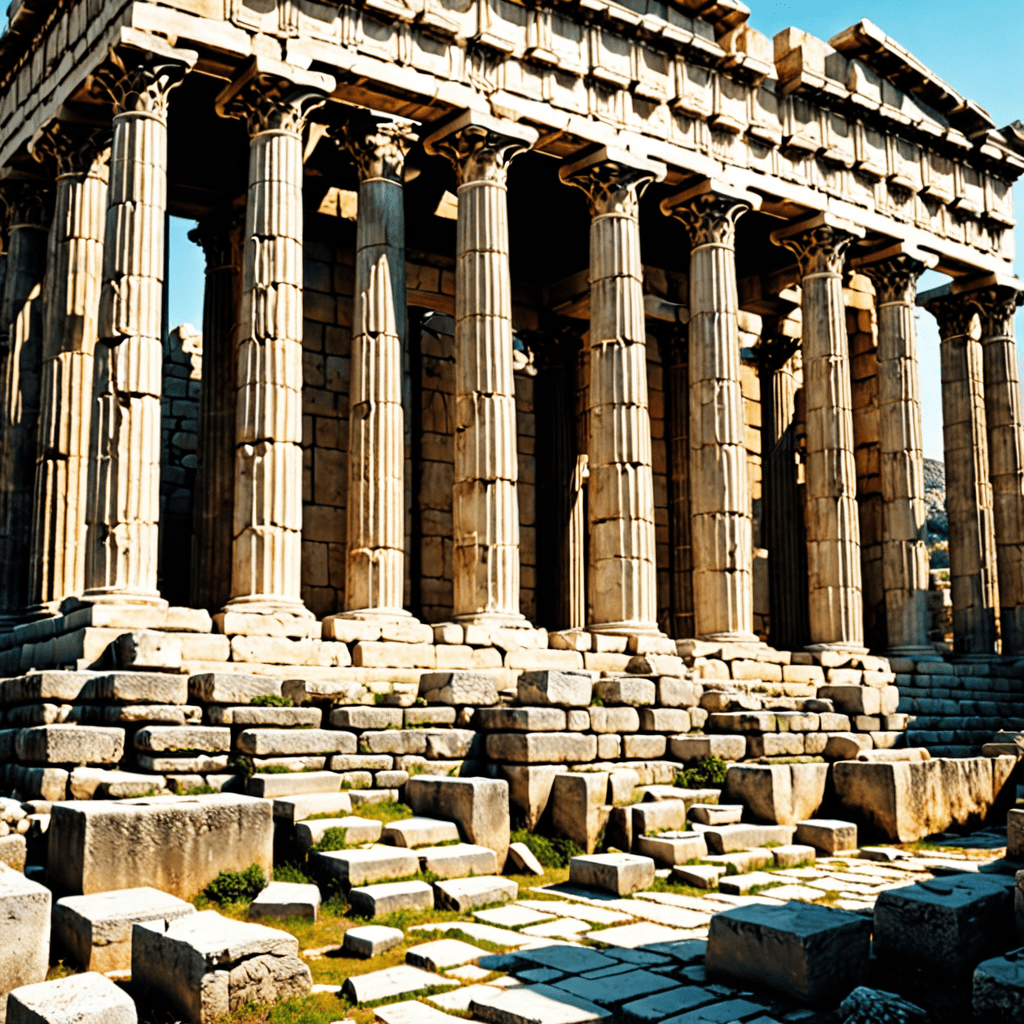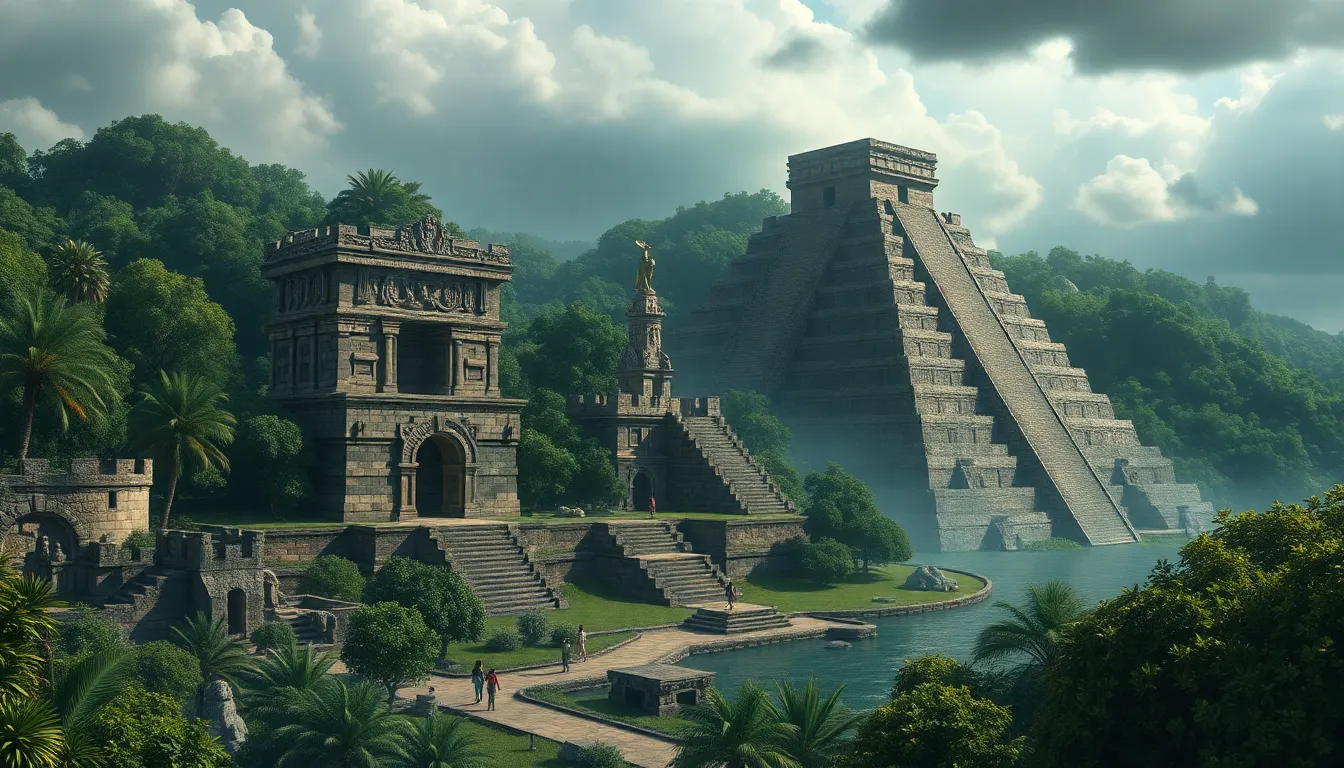The Symbolism of Ruins in Greek Mythology
From the magnificent ruins of ancient temples to the crumbling remnants of once-great civilizations, the concept of ruins holds a profound significance in Greek mythology. These remnants of the past embody various symbolic meanings that have been woven into the rich tapestry of Greek mythos. Let’s delve into the intriguing symbolism of ruins in Greek mythology and uncover the hidden meanings they convey.
The Fall of Empires and the Passage of Time
Ruins in Greek mythology often symbolize the inevitable fall of empires and the passage of time. The crumbling columns and shattered walls stand as silent witnesses to the rise and fall of civilizations, reminding mortals of the transient nature of earthly power and glory. The ruins of once-majestic cities like Troy or Mycenae serve as poignant reminders of the impermanence of human achievements and the cyclical nature of history.
The Wrath of the Gods and Divine Retribution
In Greek mythology, ruins can also represent the consequences of divine wrath and retribution. Cities laid to waste, temples reduced to rubble, and once-prosperous lands turned into desolate wastelands speak of the wrath of vengeful gods. The ruins of cities like Sodom and Gomorrah from the tale of Lot in the Bible echo this motif, serving as cautionary tales of the dangers of defying the will of the divine.
A Connection to the Ancestors and the Spirit World
For the ancient Greeks, ruins were not merely remnants of the past but also gateways to ancestral realms and the spirit world. Places like the Oracle of Delphi or the ruins of the Temple of Apollo at Bassae were seen as sacred sites where mortals could commune with the divine and seek guidance from the spirits of their ancestors. The presence of ruins was believed to channel the energy of the past, providing a link between the living and the dead.
The Beauty of Decay and Rebirth
Despite their desolate appearance, ruins in Greek mythology also embody a certain beauty in decay. The crumbling architecture, intertwined with moss and ivy, presents a haunting yet aesthetically captivating image of the passage of time. In this decay, there is also the potential for rebirth and renewal, as new life emerges from the remnants of the old. Just as the phoenix rises from its own ashes, so too do ruins hold the promise of regeneration and transformation.
In conclusion, the symbolism of ruins in Greek mythology is multi-layered and rich with cultural significance. It serves as a metaphor for the ephemeral nature of human existence, the consequences of hubris, a connection to the spirit world, and the beauty of decay and renewal. These ancient remnants continue to inspire awe and contemplation, inviting us to ponder the mysteries of the past and the enduring legacies they leave behind.
FAQs about the Symbolism of Ruins in Greek Mythology
What do ruins symbolize in Greek mythology?
Ruins in Greek mythology symbolize the passage of time, the inevitability of decay, and the transient nature of power and glory. They often represent the consequences of hubris and the decline of civilizations.
Are there specific Greek myths that involve ruins?
Yes, there are myths like the tale of the city of Troy, which fell into ruins after the Trojan War. The story of Atlantis, a once-mighty civilization that met its end in destruction, also revolves around the theme of ruins in Greek mythology.
How do ruins reflect deeper themes in Greek mythology?
Ruins serve as potent symbols of the cyclical nature of life, the rise and fall of civilizations, and the impermanence of human achievements. They underscore the importance of humility and respect for the gods in Greek belief systems.


